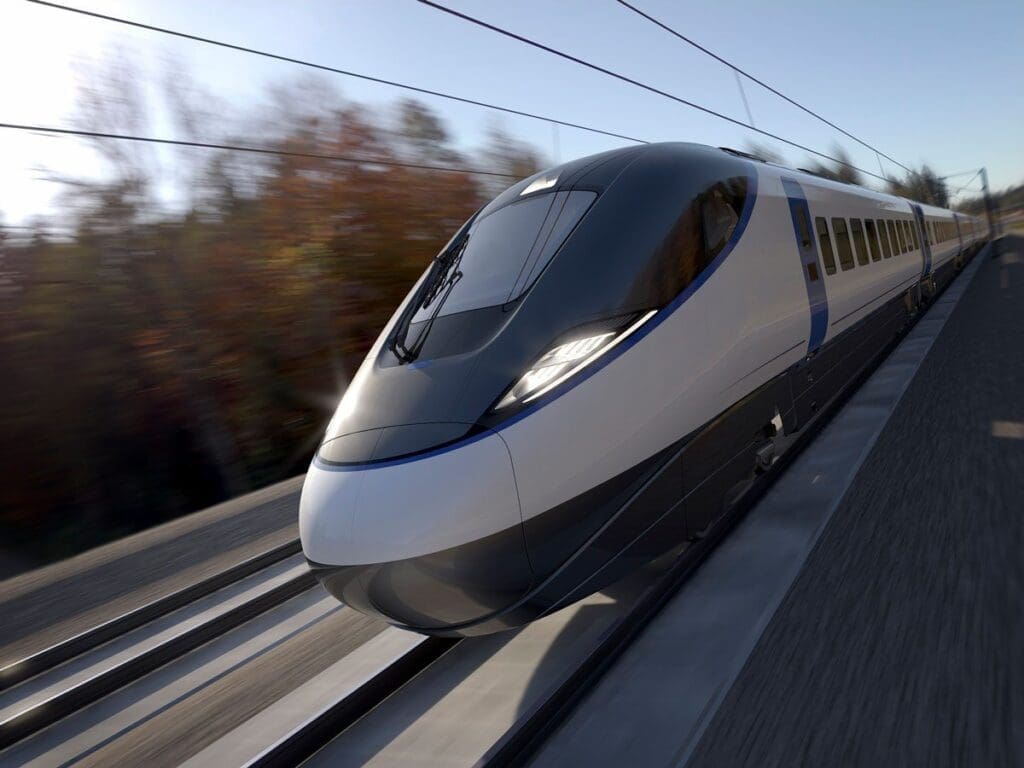
HS2 trains will be powered by zero carbon energy from day one of operation while supporting the government’s 2050 target to tackle climate change.
This commitment will play a key part in HS2 Ltd’s aim to make the project net zero carbon from 2035, with targets of diesel-free construction sites and major reductions in carbon emissions from the steel and concrete used to build the railway.
Also see
- South Western Railway retains 12 Class 707 trains in boost capacity
- Plans for new £5.9m collection building go on display at Locomotion in Shildon
- London minister hits out at Khan over handling of Night Tube dispute
HS2 Minister Andrew Stephenson said: “We know that the climate crisis demands urgent action and these commitments from HS2 are vital steps towards achieving cleaner UK travel.
Monthly Subscription: Enjoy more Railway Magazine reading each month with free delivery to you door, and access to over 100 years in the archive, all for just £5.35 per month.
Click here to subscribe & save
“HS2 is a once-in-a-lifetime investment and we want to ensure the country’s biggest infrastructure project, supporting thousands of jobs and businesses, is underpinned by the Government’s ambitions for a greener transport and construction future.”
HS2’s Net Zero Carbon Plan, published today, sets out how HS2 will achieve new carbon reduction milestones, support the decarbonisation of the UK construction sector and reduce the carbon footprint of the programme.
Major new targets include aiming for diesel-free construction sites by 2029, with the first one expected in 2022. Carbon emissions from steel and concrete will be reduced by 50% by 2030 compared with 2021 levels. To help achieve this, HS2 is collaborating with research organisations to accelerate innovation in low carbon technologies, such as alternative fuels and renewable energy.
Mark Thurston, HS2 CEO, said: “HS2 Ltd is completely committed to reducing our carbon emissions as we design, build and operate the new railway. We’ve ensured that tackling climate change is an essential feature of all areas of our work – in design, in early works, and throughout major construction, allowing the project to build towards net zero from 2035.
“The new targets announced today demonstrate the significant role HS2 will play in addressing the climate challenge, by providing a low carbon, long-distance transport solution and leading the construction sector to drive down carbon emissions.”
From 2035, HS2 Ltd will reduce carbon emissions as much as possible and make those that cannot be eliminated net zero by using natural or technological methods, known as carbon offsetting. This means HS2 will remove the same level of emissions that are produced as it builds, maintains and operates HS2.
HS2 Ltd will work towards being zero carbon from 2035 through a number of new targets. They include:
- Using 100% zero carbon electricity generation to power its trains – making journeys on HS2 zero carbon for emissions from ‘day one’.
- Introducing the first diesel-free site in 2022 – and stop using diesel on all sites by 2029.
- Working with supply chain partners and industry peers to set ambitious new science-based targets in 2022 to tackle carbon emission ‘hotspots’ year-on-year as HS2 is built.
- Cutting emissions from concrete and steel by 50% (tCO2e/t) by 2030 compared with 2021 levels.
- Investing in innovation and forming partnerships to speed up ways to cut emissions in HS2’s supply chain.
- Cutting emissions from sources HS2 owns or controls and indirect emissions from electricity production.
- Offsetting residual carbon emissions that cannot be eliminated as HS2 is built, maintained and operated from 2035. This includes looking at ways to capture and store carbon emissions using nature-based interventions such as planting new trees to absorb carbon dioxide.
HS2 is working with the supply chain and research organisations to pilot and implement low carbon materials, alternative fuels, renewable energy and new construction methods through the HS2 Innovation programme.
There are currently 32 innovative projects across the programme with projected savings of 1.6 million tonnes of carbon emissions.




